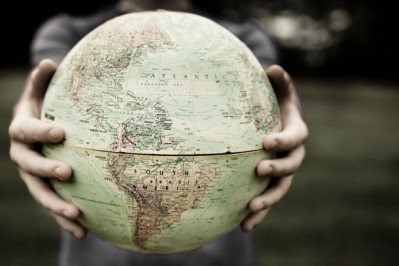Read this article in Spanish here.
Freedom of expression is a widely recognized human right in large parts of the world. However, this does not necessarily mean that everyone has the same level of freedom. Indeed, most democratic countries have more legal freedom of expression than authoritarian countries, yet, even within one country the right to freedom of expression may be limited to different people due discrimination or individual circumstance.
In an exclusive interview with ROOSTERGNN, Dimitrina Petrova, founder of the Equal Rights Trust, discusses freedom of expression within the context of human rights, how her organisation works to protect the individual and the general outlook on freedom of expression progress worldwide.
What does the Equal Rights Trust do to protect freedom of expression and what is the importance of freedom of expression as a human right?
The Equal Rights Trust looks at human rights from an equality point of view, dealing with the issue that some people are less free than others. The trust identifies the causes and possible solutions. There are projects where freedom of expression has been a component in ensuring equality. In these instances, the intersection between the right to freedom of expression and also non-discrimination is central. Balancing these two rights is important. For example, you have the right to express your negative sentiment towards Iran or immigrants, but they have the right not to be discriminated against. How do you strike this balance? The role of the media in these cases can either provoke a climate of intolerance or have a positive role in the peace process. A project of the Equal Rights Trust in Sudan has focused on empowering the network of journalists with human rights to exist to be able to create media material and publicise it.
Where in the world currently is freedom of expression most threatened?
First, in closed societies with un-democratic political regimes. Second, in states which promote or privilege a religious faith. In the first instance, the victims are political dissidents. In the second – religious minorities as well as anyone who does not comply with the dominant religion promoted by the state. For example, in states where a certain version of Islam is the dominant religion, opponents to the regime as well as all who deviate from the official religious norm are at risk of prosecution for the defamation of religion. Politically based discrimination in respect to freedom of expression is prevalent in Sudan, where pre-publication censorship continues and journalists are often charged with sedition for crossing red lines, i.e. reporting on issues such as the International Criminal Court, the armed conflict in the states of Blue Nile and South Kordofan, or corruption among public officials. In Indonesia, Kazakhstan, Malaysia, Pakistan and other countries, the Ahmaddiya community have been victims of severe religiously motivated restrictions of their freedom of expression, as the official Islam does not recognise them as real Muslims.
Is freedom of expression heading in the right direction with the proliferation of the Internet?
Yes, the mega-trend is for the proliferation of internet to be a friend of broader freedom. This is because compared to media in previous times, controlling the internet is more difficult. Governments are trying very hard to grasp as much control of the virtual space as they can, but the new IT inventions themselves seem to favour greater transparency. Websites can be hosted abroad, allowing people in internet-repressive countries to operate, albeit in a constant competition with the authorities in order to stay ahead of the game of censorship. Needless to say, China is the most worrying case of internet censorship.
Do you think freedom of expression is an issue in the developed world, where we supposedly have complete freedom of expression, as well as the developing world, where freedom of expression is not necessarily permitted?
In the so-called developed world, freedom of expression continues to be a cause for concern in a number of ways. First, it is a matter of socio-economic power. Those who have the money and the power can purchase their way into the public space and enjoy their freedom of expression. Their voices are amplified and their views easily dominate public opinion. Second, greater freedom of expression allows the prejudice of the majority to abuse the right to non-discrimination of vulnerable groups. For example, in Western European societies today, there is a strong and un-checked hate speech against migrants. In the developing countries, there is a huge diversity in respect to the enjoyment of freedom of expression, and I feel no generalisation would be credible. Some developing countries practice a total neglect of fundamental freedoms, while others resemble the situation in the developed world, where degrees of freedom of expression, as well as of enjoyment of all other human rights, mirror the landscape of socio-economic inequalities.
Dimitrina Petrova has a long background in human rights issues and regime change, having been involved in her native Bulgaria. After working in Hungary for 11 years heading the European Roma Rights Centre, Petrova started the Equal Rights Trust in order to combat all forms of discrimination.

